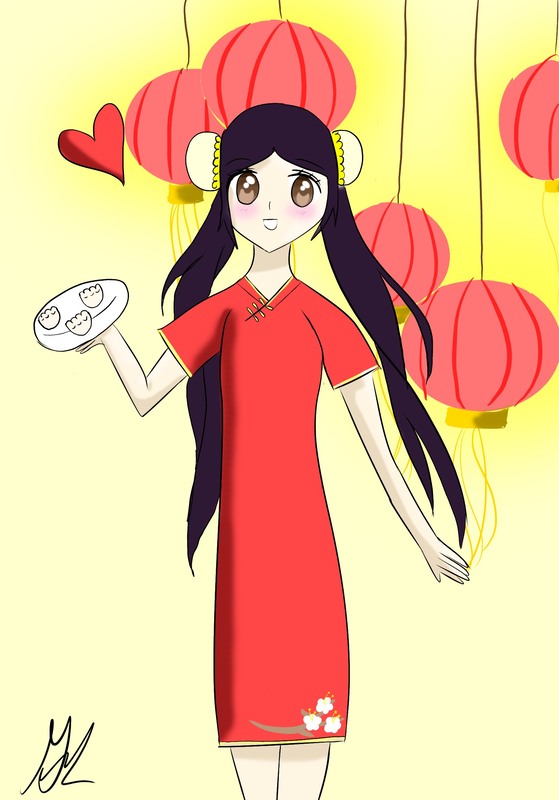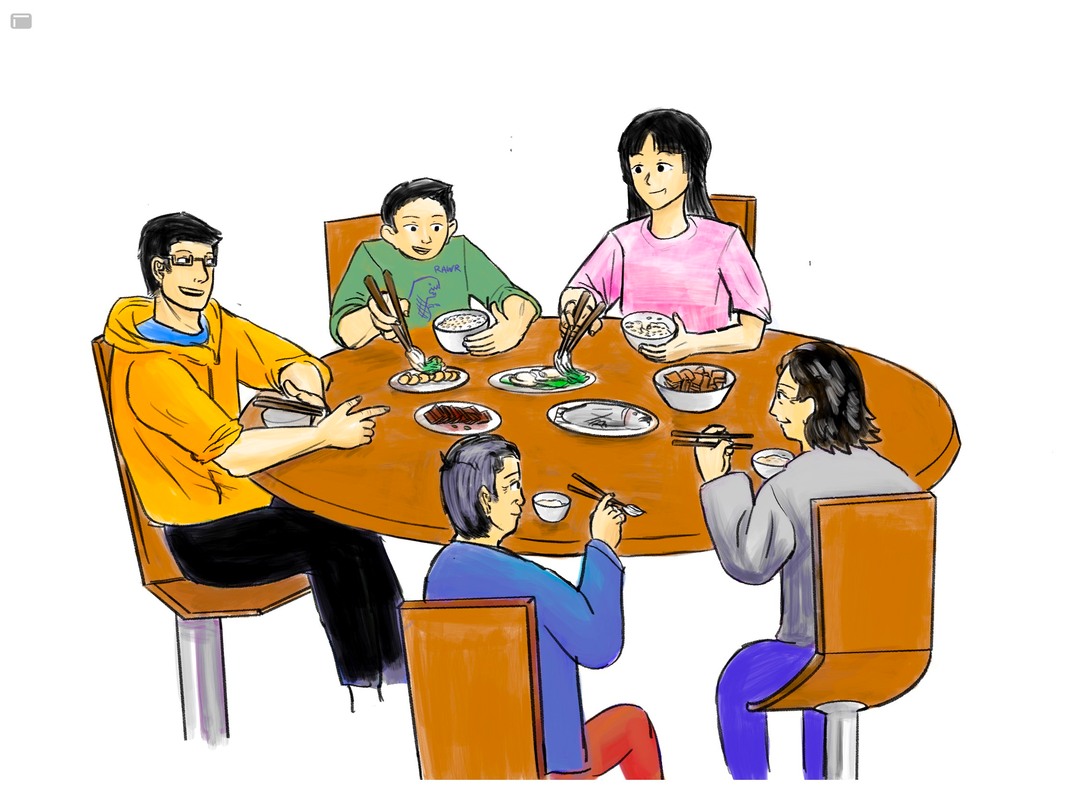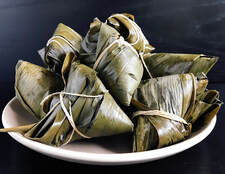|
0 Comments
We're now open for our 12th call for submissions: "Not-so-ancient History".
Fans of Percy Jackson or obscure WWII timelines unite -- we want stories, essays, artwork, and other artistic work that deals with the past in fresh new ways. This might mean mythological characters coming to the modern day, a la Disney's Mulan. This might mean that epic essay about the fall of the Ming Dynasty you've always wanted to write. Whatever (or whenever) you decide to focus on, please send us your name, grade and school, and an (optional) headshot along with your piece. Send your work to [email protected] by Wednesday, June 30th. Thank you for submitting! During the Dragon Boat Festival, my parents and I made zongzi. My brother couldn’t help because his hands were too clumsy. He didn’t want to, either. His hands were meant for the keyboard; for gaming. So it was just my mom, my dad, and I, with a big bucket full of dark green bamboo leaves between the three of us, and various bowls with different fillings. The two biggest bowls contained rice that had soaked in water overnight. One had soy sauce added to it to make it savory. We made two types of zongzi; a savory and a sweet one. There was a can of dousha, a bowl containing dried dates and mizhao, and a bowl each of duck egg yolks, peanuts, and meat. My mother’s laptop is propped up because there’s a Zoom call playing; her friend is teaching us how to make the zongzi, because, as we continued further into the activity, it became quickly aware that none of us really knew how to do it correctly. After multiple tries and several leaves sticky and unusable with rice, I make my first one while keeping an eye on the lesson; Line two leaves up. Fold up the bottom part so it creates a triangular pocket. Scoop in a spoonful of rice. Add fillings of choice. Cover with rice again. Fold the top halves of the leaves over tightly and then wrap with string. The leaves split at the seams when you wrap them too tightly. They aren’t fresh ones, so some of them are yellow with age. My pockets are small so I have to put in the smallest amount of filling. Folding the leaves begets more splits. The string runs out. We forget to separate the sweet and savory zongzi, so we end up a pot full of shapeless green packages, each one of them unidentifiable from the outside. Still, we try our best to sort them into two containers. We set them in water and text a few friends to pick up their share. When I take them out of the cooker, the water steams, silvery fog lifting into the air. With care I unwrap one, snipping the dead knot before unraveling the rest of the string. The leaves drip with water as I unwrap them. A haphazard triangle of white sticky rice appears. My hands are sticky and red from the heat. I eat it anyway, blowing on the zongzi as I go. We’re happy with them. My mother complains about the shape and criticizes the amount of string we had to use, but it doesn’t stop her from taking out her phone and snapping an endless amount of pictures. My father eats some for dinner. Even my brother puts down his headphones to try a bite. Banana leaves, rice, dried dates, string. My festival, cooped up at home. A little celebration for perseverance. Catherine Tang is a rising freshman at the Overlake School. This is her first piece in the Emerald Youth Review. I woke up to my brother calling, “Leo, wake up!”
“Why?” I asked him, sleepily. “Yesterday was my last day of first grade! School is over already so I’m not getting up. Hmph!” “We’re doing a family activity today, Leo!” “What activity would you like?” my mom asked. Although I liked talking to my parents, I didn’t like it when they repeatedly asked me questions. What was my favorite thing to do that we could do as a family? I thought hard. “I know!” I said. “We could play tennis! I heard that there is a type of tennis that takes four people to play.” “Doubles?” my brother asked. “Yes! That’s it!” I exclaimed. “I love it!” my brother said. “All right, I guess we’re playing doubles today then,” my dad said to my mom. Tennis is my favorite sport, because it’s action-packed. I also love tennis because just like most other things, you need to practice a lot to get good at it. Doubles is all about cooperation. There are two teams of two, and each pair has to work together and figure out who should return each incoming ball. I teamed up with my brother, since I was only six, and he was only nine. We played against our parents, in a casual manner. My brother would encourage me and pump me up after we won the point. “Great job!” my brother said to me as we high fived. My parents would support us as well. Another reason I love tennis is that it requires a lot of thinking. One time, we had a really long rally. This is where our strategy came in. Since my brother was taller, he went up to the net and hit the balls out of the air. If he couldn’t reach it, I would run over and hit it. This is how I learned how important teamwork is. Soon after, my brother hit a short ball and neither of my parents could get it. They laughed it off, and we went to the bench to rest. “Good job!” they complimented. This was my first memory of our family games of doubles. There were many more amazing moments, from that day until now. Over time, my brother and I got stronger and more skilled. When I turned eight, my brother was eleven, and we were beating our mom and dad easily. We had to change up the teams. I teamed up with my dad, and my brother teamed up with my mom. My brother used to get most of the balls when I was teamed up with him, but now that he wasn’t on my team, I had to cover most of the court. It taught me about responsibility because even though I had to cover most of the court, I knew I shouldn’t hit a ball that wasn’t on my side. Doubles is perfect for a family of four, and I encourage everyone to try it because it can help you bond with your parents and siblings. It’s fun, action-packed, and helps you practice teamwork. It doesn’t matter who wins or who loses, because, in the end, it’s still a very fun experience for all four of us. "Banana leaves, rice, dried dates, string. My festival, cooped up at home. A little celebration for perseverance." How does one find room for creativity within tradition? The young writers and artists featured this month answer this question by stepping outside of their comfort zones, shedding light on personal and cultural rituals with the voice of a new generation.
Chinese New Year, a digital drawing by Grace Li, depicts a girl wearing traditional qipao dress, bearing the dumplings and lanterns of festival. This impressive work bursts with visual details that tell us exactly what it is that makes the holiday special. Likewise, "The Dragon Boat Festival", a personal essay by Catherine Tang, leads us through a journey of simple culinary pleasure and teachable moments. Stepping us onto the court, Leo Yang's essay "Tennis" uses the frantic and fun pastime to illustrate a wholesome family dynamic. And it is this act of coming together that breathes life into A Family Tradition, a digital drawing by Eason Tang that distills the concept of family down into a central setting: the round table, at mealtime. We hope you enjoy this month's edition of the Emerald Youth Review. Leave a like or a comment to show your support for our rising creators. If you're struggling to come up with a submission for this month's topic, you've come to the right place. How does one go about collecting the traditions and quirks of one's family?
Here are a few simple steps to ditch the writer's (or artist's) block: 1. Do your homework. You may be struggling to recall interesting things you or your family have done, off the top of your head. Try scrolling through old photos, read any messages or letters from the past, or do a little research into your own heritage. See what sticks. 2. Ask questions. Interview your parents, siblings or other close relatives -- about trips they've taken, things they've done, and their own daily schedules. Details about cooking, holidays, or your own childhood are all potential topics. 3. Take notes. If you find something, even if it seems insignificant, write it down in the Notes app of your phone, or a notebook, or straight into your submission document. Then look for connections to other parts of your life -- perhaps a recipe handed down through generations becomes an after school snack. 4. Free write for five minutes. Summer work-shoppers know this well; letting go of the backspace button for a few minutes often frees your mind towards new directions. 5. Go for a walk, at home or in your neighborhood. By moving to observe, and not to get to a particular destination, you can get a better sense for the details of your household and the geographic location in which it resides. Work that into your setting. 6. Don't be afraid to stretch the truth. Art and writing aren't perfect depictions; if you're painting, you'll naturally make things more colorful or more vivid. The same is true with writing -- you can blend truth and fiction if you have a strong enough voice. Good luck! We hope to see your submissions soon. |
Archives
June 2024
Categories
All
|
|
follow us on WeChat
|
Copyright © 2024 Emerald Parents Association. All rights reserved.
Contact us: [email protected]
|









 RSS Feed
RSS Feed
